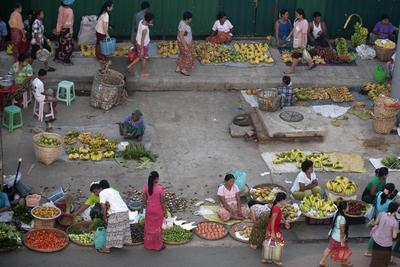In short, all of the ASEAN dialogue partners are heavily distracted having to cope with their own problems.
Within ASEAN itself, Indonesia is undergoing political change and Thailand has been rudderless for over a year. Myanmar, the host country, has been carefully making the transition from military rule to civilian governance.
It is against this background that ASEAN leaders will get down to business when they meet at their annual summit on 10–11 May 2014.
The first item for discussion will be a declaration on the ASEAN Economic Community (AEC), which currently has a completion date of 2015.
According to the third AEC score card, issued by the ASEAN Secretariat, ASEAN achieved around 80 per cent of its targets in the last four years. There will be political recognition that the remaining 20 per cent of targets are the most difficult to achieve and senior officials and the Secretariat will be asked to continue their work.
The leaders will also take into account mutterings from the less-developed countries like Laos and Cambodia that the pace of integration is too fast for them and they are having trouble coping. The role of SMEs would be a point for discussion in narrowing the development divide.
Another major item for discussion will be the ASEAN Vision Beyond 2015. Feedback received from the research community will be taken into account on the directions that ASEAN should take in the coming year as it moves towards achieving its steadfast goal of an ASEAN community.
Also, a further item for discussion could be the need to make ASEAN a people-centric organisation. This is an issue of particular interest to the host country, Myanmar. The push will be made for the people of ASEAN to benefit from actions such as increasing the range and choice of goods, lower prices and greater employment.
Finally, ASEAN will have to address the issue of its relations with its dialogue partners —the United States, Canada, Russia, China, EU, India, Japan, Australia, New Zealand and South Korea. On the one hand, attention needs to be paid to ensure that ASEAN does not get dragged into conflicts such as the one between China and Japan. On the other, it is important for ASEAN to explore ideas on what it exactly wants from its partners, at a time when they themselves are trying to come to grips with problems in their domestic and external environments.
All in all, the Yangon summit promises to be one of the most challenging in ASEAN’s 47 years of existence.
K. Kesavapany is a Distinguished Affiliated Fellow at the Asian Research Institute, National University of Singapore.

